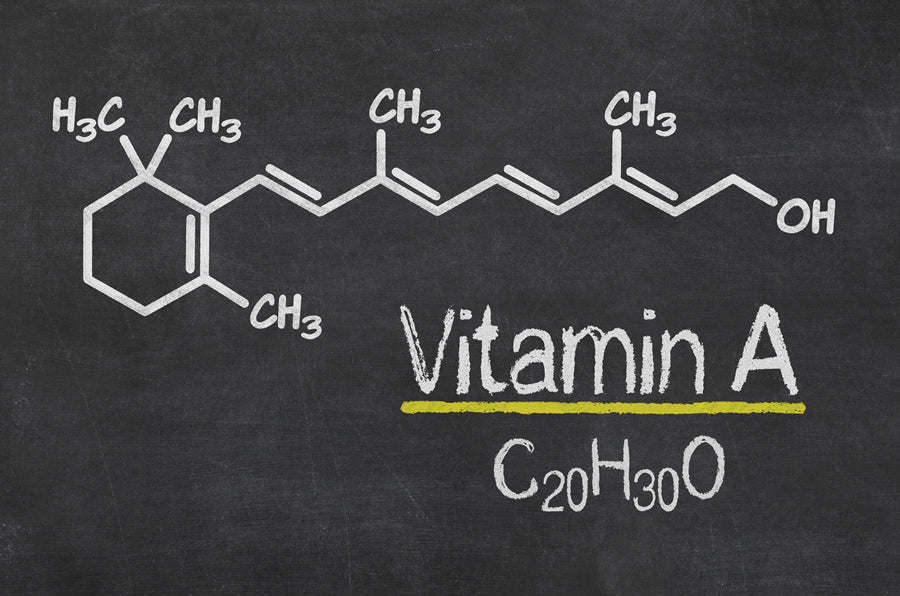FREE SHIPPING ON U.S. ORDERS OVER $65
FREE SHIPPING ON U.S. ORDERS OVER $65
Press
About
ABOUT MARIE VERONIQUE
Marie-Veronique Nadeau is a chemist who founded Marie Veronique in 2002. An inventor at heart who suffered from teenage acne, she was moved to create her own products when she could find nothing on the market that was clean and effective to address her rosacea. From there, she went on to develop a line for acne and was one of the first to formulate a non-nano zinc oxide sunscreen. She continues to lead the way towards safe yet effective skincare, determined to move an industry ensconced in hype into the realm of science. She is a trained esthetician, holds degrees in Math and Science, and is a former high school chemistry teacher. She collaborates with her daughter, Jay Nadeau, physicist and bio-medical engineer, to carefully choose each ingredient in her products to solve real skin issues and address the causes of aging at the source.
Our vision at Marie Veronique is to deliver superior, non-toxic skincare drawing on nature’s genius and the brain of science through innovative formulations. Achieving optimal skin health and healing real skin issues drive us to produce safe products that truly work.

ABOUT MARIE VERONIQUE
Marie-Veronique Nadeau is a chemist who founded Marie Veronique in 2002. An inventor at heart who suffered from teenage acne, she was moved to create her own products when she could find nothing on the market that was clean and effective to address her rosacea. From there, she went on to develop a line for acne and was one of the first to formulate a non-nano zinc oxide sunscreen. She continues to lead the way towards safe yet effective skincare, determined to move an industry ensconced in hype into the realm of science. She is a trained esthetician, holds degrees in Math and Science, and is a former high school chemistry teacher. She collaborates with her daughter, Jay Nadeau, physicist and bio-medical engineer, to carefully choose each ingredient in her products to solve real skin issues and address the causes of aging at the source.
Our vision at Marie Veronique is to deliver superior, non-toxic skincare drawing on nature’s genius and the brain of science through innovative formulations. Achieving optimal skin health and healing real skin issues drive us to produce safe products that truly work.
The Best Cleanser for Skin Health Isn't Sold by Any Skincare Company, Including Ours.
by Marie Veronique Skin Experts

When asked about her most essential products, it’s no secret that Marie Veronique Nadeau will reveal she uses yogurt as her daily cleanser. In fact, it was a muse when we formulated our oil cleansers to be a shelf-stable version of it. In honor of Marie’s dedication to the source and her legendary influence over many of us, we feel compelled to elaborate on this effective DIY step so you may experience the wonders of Mother Nature’s fermented topical if you wish.
Answering Your Questions About Multi-Retinol Night Emulsion
by Marie Veronique Skin Experts

Addressing your most frequently asked questions about our latest product release, Multi-Retinol Night Emulsion.
Dermal Delivery of the Essential Topical Micronutrients: Part Two
by Marie Veronique

I didn’t realize until after I’d written the previous blog post that it begged for a sequel; knowing which micronutrients are necessary to maintain healthy skin is of course important, but if micronutrients don’t travel to where they need to go, not to mention be in good shape and ready to work once they’ve arrived, then they’re useless (even worse than useless in some cases, when being in the wrong place can harm the skin). So, in a follow-up to the discussion in Part One concerning which micronutrients to use we focus this time on where micronutrients need to go, i.e., to which layers of the skin, their mode of transport, and what they do once they’ve reached their destination. The short term for all this eventful activity is Dermal Delivery.
Dermal Delivery of the Essential Topical Micronutrients
by Marie Veronique

We are increasingly aware of the link between health and beauty, and in no place is it more apparent than in the skin: When your skin glows with health it, and you, are automatically beautiful. This intuitive reaction to a lovely complexion is biologically hardwired; healthy skin is a profound attractant, one that we are instinctively drawn to. It’s no wonder then that we spend so much money and time on gadgets, gimmicks and expensive spa outings that promise to return our skin to a Shangri-la state of skin glow. However, these quick fixes quickly fade, and you’re back to where you started. Why? Because skin beauty—that glow I was talking about—is predicated on skin health, which is itself a product of overall health. If we are healthy our skin will show it, whereas if we are struggling with health problems our skin will show that. In fact, our skin can be an excellent barometer of our health in general. Happily, as we learn more about the connection between health and beauty, not only are our notions of beauty evolving, so is our ability to support and sustain it.
Advances in Age-Defying Skincare: The Vitamin B3 Story
by Marie Veronique

We’re all familiar with hyped skin care ingredients that promise the moon—or at least subliminally suggest that we’ll look as if constantly bathed in moonlight with regular usage. Of course, some superhero ingredients, like retinol, stand the test of time. Others, like vitamin C derivatives SAP and MAP, have improved tremendously over their earlier versions thanks to excellent research and development. And others, like peptides, excited formulators at first, then disappointed once it became obvious that they weren’t living up to their original promise. Still others, like plant stem cells, were silly from the get-go—we are not plants, so it’s unclear how plant stem cells (undifferentiated cells that foster new cell growth) are supposed to improve mammalian skin. Plants and animals don’t even belong to the same Kingdom, so it’s a stretch.
Natural Skin Care Should be Effective, Not Just Safe
by Marie Veronique

Consumers have had a considerable impact on the food industry by demanding more organic, natural, sustainable and local options. And since consumers have turned their attention to the cosmetics and skin care industry, demanding better accountability and more stringent safety standards, we’ve seen real progress when it comes to cleaning up our cosmetics and body care products, especially in the last decade.
Retinol Explained + 6 Tips For Successful Use
by Marie Veronique

When the goal is to prevent aging and correct existing damage, virtually all dermatologists will agree that daily retinoid use is the answer. The term "retinoid" refers to vitamin A and the various molecules derived from vitamin A—which itself is also known as retinol (ROL). This can lead to great confusion because while the official name of Vitamin A is retinol, the derivatives, called retinoids, belong to different categories. Beta carotene is a pro-vitamin A, while retinyl palmitate, unlike its successors in the conversion chain to retinoic acid, retinol and retinal aldehyde, does not convert to retinoic acid. This means you do not want to use these forms of vitamin A (unless you are looking for an oil-soluble antioxidant).
A Sperm-Savers’ Shopping Guide
by Marie Veronique
Browse by Topic
Browse by Topic
Categories
- Acne
- Adult Acne
- Aging
- Anatomy + Physiology
- Ashley Neese
- Bacteriophages
- Barrier Function
- Beyond Topical
- Body
- Circulation
- Collagen
- Company News
- Conscious Breath
- Daphne Javitch
- Dermatitis
- Eczema
- Exfoliation
- Eye Care
- Hydration
- Hyperpigmentation
- Imperfect Wellness
- Ingredients
- Julia Sherman
- LED Light Therapy
- Lisa Levitt Gainsley
- Makeup
- Masks
- Men
- Pathogens
- Pregnancy
- Red Light Therapy
- Retinoids
- Romy Soleimani
- Rosacea
- Skin Health
- Skin Microbiome
- Sun Protection
- Unique Hammond
- Values
- Viruses
- Vitamin C
- Vitamin Therapy
- Winter
- Yogurt







